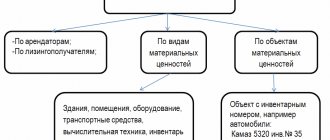Alcoholism is a serious disease that affects the life of not only the alcoholic, but also those around him. If we take, for example, marital relations, then an excessively drinking husband, who does not want to pull himself together and begin to be treated, with his antisocial lifestyle and behavior based on unmotivated aggression, scandals and assault, destroys not only his life, but also his health and the psyche of his wife, as well as his own minor children.
Unfortunately, despite such terrible psychological consequences of family life with an alcoholic, the law does not allow a spouse to divorce him according to a simplified procedure. According to the explanation of the Supreme Court of Russia, citizens who abuse alcohol and do not suffer from mental illnesses, for example, schizophrenia or paranoia, cannot be deprived of their legal capacity. It is only permissible to limit their legal capacity.
Considering that the Family Code allows for a demand for divorce by a unilateral decision of the spouse only if the second spouse is an incapacitated person, we can draw the following conclusion: with regard to the procedure for divorcing an alcoholic, the general rules prescribed in family law apply.
Features of divorce proceedings with an alcoholic
In the absence of disputes and disagreements
The termination of a marriage with an alcoholic is formalized through the state civil registry office that married the spouses or is located at their place of registration only when two circumstances are simultaneously present:
- A married couple does not have at least 1 common child under 18 years of age, i.e. whose biological parents are both spouses.
- Consent to break the marriage bond on the part of both partners.
The step-by-step procedure for ending a marriage is as follows:
- First, the marriage partners prepare a joint statement. It must certainly contain the signatures of both spouses, otherwise the registry office will consider that there is no mutual consent to divorce.
- The following are the documents that should be attached to the application:
- Marriage certificate.
- Passports provided by both marriage partners.
- At the next stage, the fee is paid, and written proof of payment (check or receipt) is attached to the documents.
- Both spouses come to the registry office and give the documents they have collected to the authorized official. If one of the parties to the marriage cannot come to submit documents, then he must witness his signature on the application through a notary.
- After 30 days, a record of the termination of family relations will be entered in the divorce register. Spouses will be provided with a paper divorce certificate.
If, despite the consent of the spouses to divorce peacefully, disagreements arose between them about how to divide the acquired property or what amount of alimony should be paid in favor of the disabled spouse, then it is necessary to refer to the clarifications of the Supreme Court of the Russian Federation regarding this conflict situation.
He indicated in paragraph 2 of the resolution that the termination of a marriage takes place in the registry office, and property or alimony disputes are resolved through the court.
In lawsuit proceedings
The Family Code identifies three reasons why the issue of ending a marriage should be referred to the court for resolution:
- Evasion of the wife or husband from going through the divorce procedure at the registry office.
- Presence of young children under 18 years of age.
- The defendant's disagreement with the plaintiff's demands for dissolution of family relations.
The district court resolves all divorce claims in which the value of the disputed marital assets is above 50 thousand rubles or there is a dispute regarding the future life of minor children (they will live with their father or mother after the end of the trial; how they will be raised; how often they will be able to communicate with parent living separately). All other claims related to the termination of marriage are the prerogative of justices of the peace.
Typically, the interested party filing a divorce action is the party suffering from the alcoholic spouse, so in most cases the application is sent to the court in the place of residence of the alcoholic spouse. However, there are situations when a wife is forced to take minor children in order to ensure their safety and leave her rowdy husband for the city where her parents live or where she is registered. In this situation, the law allows the wife to begin divorce proceedings at her place of registration.
Judicial practice shows that in the overwhelming majority of cases, judges do not reconcile marital partners and do not pay attention to the alcoholic’s objections to ending the marriage if the plaintiff presents to the court convincing evidence of alcoholism and inappropriate behavior of the defendant. These include:
- Certificates of beatings of children or spouses, issued by a medical institution.
- Testimony of a local police officer who responded to a call because of the aggressive behavior of a spouse.
- Materials (protocols, resolutions, results of medical examinations) about administrative offenses committed by the defendant under the influence of alcohol.
- Having a criminal record.
- Testimony from relatives and neighbors.
- An examination of living conditions in the place of residence of the alcoholic spouse, conducted by the guardianship institution. The results of the examination must be recorded in writing.
- Survey of children by specialists from the care institution.
- Evidence of waste of family property by an alcoholic.
In addition, the provision of the above evidence is an indisputable argument in favor of not giving children to an alcoholic spouse and limiting his participation in their upbringing, as well as limiting the number of meetings with minors. In exceptional cases, when the father beat the children or exerted psychological pressure on them through threats or manipulation, the court may completely prohibit him from communicating with the children, and also raise the question of depriving him of his rights as a parent.
It should be noted that the judge, in case of beating of children by an alcoholic parent or exerting psychological pressure on them, has the right to cancel the agreement on children concluded by the spouses. The justification for the cancellation will be to protect the interests of minors from illegal attacks on them.
The Family Code recognizes the termination of a marriage as valid from the moment the court decision acquires legal force, namely one month after it is drawn up in its final form. After this, the plaintiff needs to contact the court office for an extract from this decision and provide this extract to the registry office along with the following documents:
- Statement.
- Marriage certificate.
- Passport.
- Extract from the judicial act.
- Proof of payment of the state fee (check or receipt).
Then you need to come on the day appointed by the registry office employee for a certificate confirming the fact of divorce.
How to force a man/woman to file for divorce?
The partner’s initiative regarding divorce can be programmed. This is a subtle psychological technique, the objectivity of which experts often talk about.
There are several options for creating the desired situation:
- stand firm on your own. It is necessary to regularly hold conversations about the incompatibility of characters so that the spouse gradually forms an opinion about the only right decision - separation;
- You can personally submit an application to the registry office, notifying your spouse after the fact. This is correct if one of the partners does not want to remain alone even after much persuasion. In addition, in the absence of children and common property, you will not have to go through all the circles of judicial hell;
- the aggressive method is a strategy for destroying everyday comfort. You can create such an atmosphere in the house that your partner will personally want to escape from the marriage as quickly as possible. Of course, when there are children in the family, such methods can negatively affect their psyche.
When there are no more feelings, there is stagnation in the relationship and there is no mutual understanding, you should say goodbye to each other.
Dear readers! To solve your problem right now, get a free consultation
— contact the on-duty lawyer in the online chat on the right or call:
+7
— Moscow and region.
+7
— St. Petersburg and region.
8
- Other regions of the Russian Federation
You will not need to waste your time and nerves
- an experienced lawyer will take care of solving all your problems!
Possible difficulties in the absence of the defendant at court hearings
Difficulties in completing the divorce process for the plaintiff may arise when the defendant was notified of the upcoming court hearing, but he informed the judge that he could not come for a good reason, for example, due to being on a business trip, his own illness, or the death of a relative. Accordingly, after the end of the business trip, the defendant’s recovery and the completion of funeral rituals, the legal proceedings should be resumed. Alcohol binges, of course, are not among the valid reasons.
Other cases that do not affect the administration of justice in the absence of the defendant are indicated in the table.
| Situations involving notification of the defendant about the trial | Legal consequences |
| The defendant was notified, but did not notify the court in advance of the reasons for his absence, and also did not ask to resolve the divorce claim without him. | The court has the right to administer justice without the presence of the defendant and to divorce the spouses. |
| They could not notify the defendant, and the summons was returned to the judge with a note from the postal service that the storage period had expired. | In Russia, it is believed that the return of a summons with this mark means the defendant’s refusal to participate in the proceedings. Consequently, the court can resolve the dispute without its direct participation. |
Why doesn't a woman leave on her own?
Common reasons why a woman does not leave on her own:
- A pity. The husband can put pressure on pity and not let his wife go, manipulate the children, say that he cannot live without her.
- Material question. If a man files for divorce, the woman can receive material benefits.
- Aggression. The spouse may behave aggressively and threaten violence if he tries to leave.
- Guilt. A husband can manipulate children and cause feelings of guilt.
Whatever the reason, there are ways to get rid of a husband who doesn’t want to leave .
List of documents for filing a claim
The first thing you need to start with is thinking about and writing a statement of claim, which is drawn up in 3 copies for both parties to the process and the judge. The statement of claim cannot be written in free form, since its structure is established by law. Therefore it states:
- The name of the court to which the application is sent.
- Information about the parties to the process, including their full name, contact information and address of registration or temporary place of residence.
- Information about representatives, if they participate in legal proceedings.
- The exact date and place of the wedding.
- The name of the state civil registry office that registered the family relationship.
- If there are children under 18 years of age, then you must indicate their name (full full name), how old they are, as well as details of the child’s certificate or passport.
- The reasons why the plaintiff does not see the possibility of remaining in a marital relationship, for example, the spouse’s alcoholism, scandals due to heavy drinking, aggressive behavior.
- What is the disagreement of the other spouse, if any, expressed?
- Other requirements stated by the plaintiff, for example, to divide property, determine the amount of alimony for children.
- Information about concluded agreements (on the division of property, about children, about alimony, etc.) or about the marriage contract, if these documents are available.
- Description of evidence.
- Links to laws.
- List of applications.
- Date and signature.
Approximate examples of statements that will help you quickly draw it up, and, consequently, divorce an alcoholic, can be found here (statement when there are children) and here (statement when the spouse disagrees).
The following documents are usually submitted as attachments in 3 copies:
- Marriage certificate.
- Agreements regarding children, alimony or division of property, if any.
- Certificates or copies of passports of minor children.
- An inventory of marital property, if a demand for its division is made.
- A report on the valuation of marital property, completed by a professional appraiser.
- Information certifying the presence and amount of income of the defendant (when filing alimony claims).
- Title documents for housing or a rental agreement for housing (if there is a dispute about young children).
- Marriage agreement, if available.
- Evidence of the spouse’s alcoholism and the negative consequences resulting from it:
- Certificates of beatings of children or spouses, issued by a medical institution.
- Testimony of a local police officer who responded to a call because of the aggressive behavior of a spouse.
- Materials (protocols, resolutions, results of medical examinations) on administrative offenses committed under the influence of alcohol.
- Having a criminal record.
- Testimony from relatives and neighbors.
- An examination of living conditions in the place of residence of the alcoholic spouse, conducted by the guardianship institution.
- Survey of children by specialists from the care institution.
- Evidence of waste of family property by an alcoholic.
- Proof of payment of the state fee (check or receipt).
Choosing a place and time for a serious conversation
You need to talk to your husband about divorce after making an informed decision. You should not run to the registry office after a domestic quarrel, the cause of which is insignificant, or if the problem is solvable. But constant conflicts should lead to the idea that marriage does not bring happiness, so something needs to be changed . First, try to prevent divorce:
- Think about what irritates you and prevents you from enjoying your marriage. Having identified the cause of dissatisfaction, try to correct it, work through it or eliminate it.
- Start a conversation with your husband about the reasons that prompted thoughts of a breakup. A calm conversation between two people who know each other helps to find a solution.
- If you can’t cope on your own, a psychologist will help. Make an appointment with a family therapist or an individual session.
READ
How to divorce your husband: effective recommendations
Mistakes in conversation
Women are emotional, so they are rarely capable of dialogue leading to a solution to the problem. They make mistakes by using incorrect information, but this cannot be allowed if the wife initiates the conversation about the relationship. Main prohibitions:
- It happens that a wife threatens or uses the argument about the possibility of divorce in order to force her husband to agree to a compromise during a quarrel. This will cause the breakup phrase to lose its significance.
- The use of counterarguments based on a man’s appearance, habits and traits is prohibited. Focus on your emotions as a result of his actions.
- You can’t get angry or show aggression, even if it’s a response. The wife who decided to divorce had time for moral preparation, which cannot be said about the husband, for whom the new information was unexpected.
Timing
Determining the right moment to talk is difficult, but constant delays will not save the marriage. Choose a quiet time when you can spend more than an hour with each other. If you have any children, send them to relatives or friends so that they do not witness the scandal. Ask your husband to turn off all gadgets, having done the same first, so as not to be distracted.
Selecting a location
You can tell your husband about the divorce alone in a shared apartment. The method is suitable if the spouse is aware of the problems of the marriage, but is ready to peacefully respond to words about the breakup. Otherwise, use the help of a third party, preferably a man, or choose a public place where you can protect yourself from aggressive physical manifestations.
Arbitrage practice
From the materials of judicial practice, three clear conclusions can be drawn:
If the plaintiff has documented evidence of the defendant’s alcoholism, evidence of his aggressive inappropriate behavior, for example, a certificate from a drug treatment clinic with a diagnosis of alcoholism, a certificate of beatings, testimony of a local police officer and other police officers who arrived on call, then the court may not provide time for reconciliation and immediately divorce the spouses.- Children are never left with alcoholic ex-spouses against whom there is evidence indicated in paragraph 1.
- If the marriage partners have not entered into an agreement on the division of property, then a respectable spouse may ask the court to transfer to him a share exceeding 50% of the total value of property assets. In most cases, the courts do not refuse such a request, since alcoholics usually do not support their family and drink away the family property.
As for the division of property after several years from the end of a marriage with an alcoholic, in the practice of Russian courts there is the following case, which was considered in the Oktyabrsky District Court of Novorossiysk, Krasnodar Territory in June 2021.
In a statement to his ex-wife, the ex-husband demanded that the house acquired during the marriage be recognized as joint property and, accordingly, divided in half between them. The ex-husband explained the reasons for his claims as follows: at the time of purchase, the house was unfinished and poorly equipped, the housing was repaired with joint money and his personal physical efforts. Accordingly, the plaintiff is entitled to half of the said house. In addition, the applicant does not believe that he missed the statute of limitations because he did not know about the violation of his right until 2021.
The wife did not recognize the claims of her ex-husband and stated the following in her defense:
- The disputed house was given to her as a gift from her mother.
- Home improvement work was carried out before marriage.
- The plaintiff suffered from alcoholism during the marriage, sold family property for drinks and did not have a regular income. In this regard, the defendant decided to divorce him.
- After the divorce, out of pity, she settled him in another apartment, which also belonged to her. The plaintiff organized gatherings of alcoholics in this apartment and sold everything valuable in the apartment.
- The statute of limitations (3 years) was missed by the ex-husband, since he knew that the house was donated in 2010, i.e. 7 years ago.
A witness present at the meeting stated that the disputed house was donated and did not require repairs at the time of transfer. She confirms the defendant’s words that the plaintiff is an alcoholic and a squanderer of family property.
As a result, the court came to the following conclusions:
- As a result of comparing the dates on the donation agreement and on the divorce certificate, which indicates the date of registration of the marital relationship, it was established that the donation of the house occurred earlier than the marriage.
- The technical passport for the house confirms the defendant’s words that capital investments in the home were made before marriage. It follows that the plaintiff's claims are unfounded.
Regulatory framework
| List of normative acts | List of articles |
| Tax Code (Part 2) | Article 333.19 – court state fees; Article 333.26 – state fees for the registry office. |
| Family code | Article 19 describes when a marital relationship is dissolved through the state registry office. Article 21 – describes when a marital relationship is dissolved through the court. Article 24 is a list of issues that the judge must decide during the divorce process. Article 66 – establishing a ban on meetings between a parent and minor children if this parent harms their mental or physical health. |
| Civil Code (part 1) | Article 30 – cases when the law allows limiting the legal capacity of an individual. |
| Civil Procedure Code | Article 23 – claims falling within the competence of magistrates. Article 24 – claims within the competence of the district court. Article 29 – grounds for filing claims with the court located at the plaintiff’s place of residence. Article 131 – statement of claim and its internal structure. Article 132 – listing of attachments attached to the statement of claim. Article 167 – consequences of the defendant’s absence at court hearings. |










